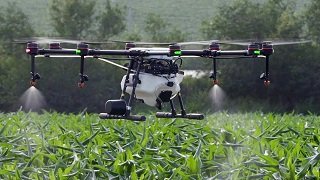Netafim India launches Portable Drip Kit for farmers
The kit is designed particularly for small farmers with farmland up to one acre
Netafim India, a leading smart irrigation solution provider, has Portable Drip Kit – a comprehensive all-in-one irrigation solution. The kit is designed, particularly for small farmers with farmland up to one acre that offers installation assistance without additional labour.
The Portable Drip kit is available across India through Netafim’s dealer network. It is suitable for all types of Rabi and Kharif crops varieties including vegetables, cucurbits, close spacing crops etc. The company through the launch of the Portable Drip Kit aims to cover 10,000 hectares of land under irrigation and reach 25,000 farmers across India in the upcoming year.
Designed for irrigation of 4500 m2 fields, all the products and parts can be easily installed and dissembled after use to relocate at a convenient storage space. Additionally, the kit is integrating advanced durable drippers that provide excellent operational performance.
The key component of the kit is FlexNet – a ground-breaking leak-proof flexible mainline and manifold piping solution that offers precise water delivery solutions and increases water savings as well as improves crop performance potential through enhanced system performance. It reduces weeding and muddy spots thanks to perfect sealing between the patented outlets and the pipe, which guarantees to provide top performance over many years. It offers a full line of lateral connectors compatible with all Netafim systems. The white colouring offers thermal resistance and can withstand high chemical and UV exposure.
Randhir Chauhan, MD, Netafim India, commented, “Netafim India focuses its energies on simplifying cultivation process for farmers and empowering them on the road to growth. We understand that most farmers in India hold fragmented land pieces smaller than 1 acre. Such conditions make crop cultivation a daunting and challenging task for them. The debut of Portable Drip Kit is a result of Netafim’s continued commitment to offer convenient technology, especially to marginal farmers for improved yield potential and productivity, while reducing costs, labour and bring efficiency to water use.”
The Portable Drip Kit includes all needed components for field installation and operation that consists of screen filter, flexnet pipe, dripline and connectors.
The kit is designed particularly for small














